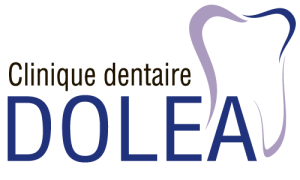Oral Health
 Dental floss works!
Dental floss works!
- Take a 30-cm length of floss, about as long as your forearm.
- Wrap the floss around your middle fingers, leaving a five-centimetre section between fingers.
- Slide the floss into the gaps between the teeth. When it reaches the gum, move it around in a semicircular motion.
- Both sides of every tooth should be cleaned, including the back of the molars.
- Continue cleaning until there is no more food residue between your teeth.
- Ask your dentist what type of floss is best for you for optimum effectiveness.
Thorough brushing
- A centimetre of toothpaste is needed for effective brushing.
- Place the bristles of the brush under the gum line at 45 degrees, at the base of the teeth.
- Brushing should last a minimum of two minutes.
- Use the brush in a delicate rotary motion.
- The surface of every tooth must be cleaned.
- In addition to brushing the teeth, the tongue should be given a gentle brushing.
- After cleaning, it is essential to rinse the brush. Let it dry in the open air.
Your toothbrush is important
- To easily reach all your teeth, choose a brush with compact, rounded head.
- A soft or extra soft brush helps preserve and protect tooth enamel and gums.
- Your grip on the handle should be firm and comfortable.
- When you notice the bristles start to curl or whitish residue accumulate at their base, it is time to change your brush. This occurs every three months or so.
Medications
Your dentist, just like your GP, is part of the team of specialists ensuring your health and wellbeing. That is why, before starting any treatments, your dentist needs to know your medical history, such as the medications you take.
Some medications may interfere with healing after dental surgery. Bleeding or delayed healing of a wound or even infections may occur.
To ensure proper healing, discuss your medical history with your dentist.
Pregnancy
It is important to tell your dentist if you are pregnant. Since the foetus is sensitive to radiation, especially in the first trimester, your dentist will avoid taking X-rays.
However, local anesthesia needed during routine dental treatment is not dangerous at any stage of pregnancy.
Pregnancy gingivitis
Pregnancy causes many hormonal changes. These can make gum tissue particularly susceptible to inflammation. This phenomenon is known as pregnancy gingivitis. Women affected experience redness and swelling of the gums.
Women whose teeth are subject to plaque are more at risk. To reduce the risk of getting pregnancy gingivitis, you can decide on a professional cleaning in the early weeks.
Teeth whitening
Pregnant or breastfeeding patients should postpone whitening treatment according to the Ordre des dentistes du Québec.
 514 453-9810
514 453-9810 